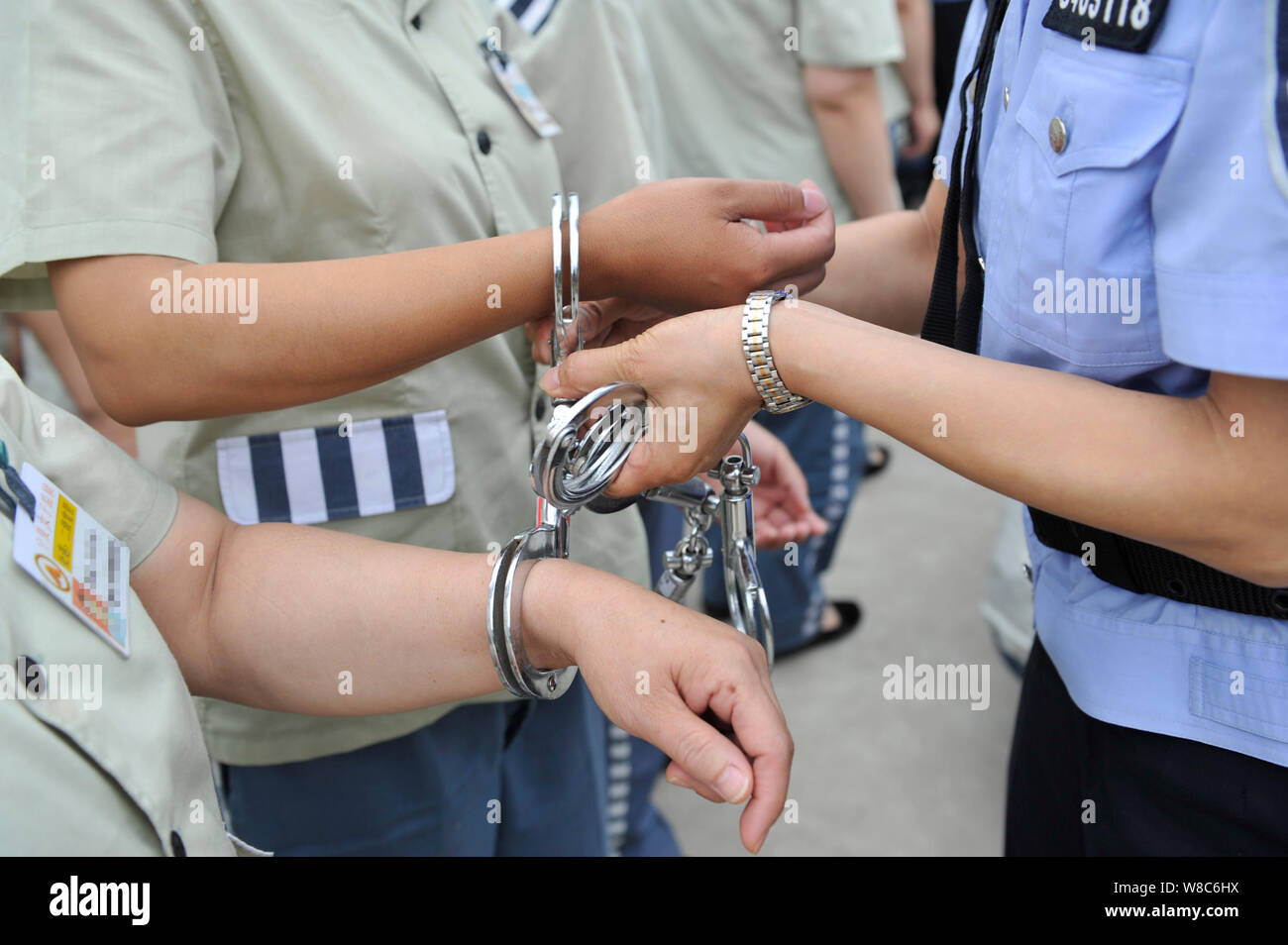--FILE--A Chinese police officer puts handcuffs on prisoners before they transferred to a new prison in Yinchuan city, northwest China's Ningxia Hui A

Image details
Contributor:
Imaginechina Limited / Alamy Stock PhotoImage ID:
W8C6HXFile size:
17.1 MB (418.7 KB Compressed download)Releases:
Model - no | Property - noDo I need a release?Dimensions:
3000 x 1996 px | 25.4 x 16.9 cm | 10 x 6.7 inches | 300dpiDate taken:
28 June 2015Photographer:
ImaginechinaMore information:
--FILE--A Chinese police officer puts handcuffs on prisoners before they transferred to a new prison in Yinchuan city, northwest China's Ningxia Hui Autonomous Region, 28 June 2015. China plans to grant prisoner amnesties to mark this year's commemorations of the 70th anniversary of the end of World War II and victory in the War of Resistance Against Japanese Aggression, only the eighth time this has happened since the founding of the People's Republic of China in 1949, Xinhua news agency said on Monday (24 August 2015). Four categories of prisoners who do not pose a threat to society will be given a special amnesty, Xinhua quoted Li Shishi, head of the Chinese parliament's standing committee's legislative affairs commission, as saying. That will include prisoners who fought in the war against the Japanese and the civil war against the Kuomintang army, or who fought in wars post 1949 to protect the country¯s sovereignty, security and territorial integrity, or who are older than 75 and those with physical disabilities unable to care for themselves, Xinhua said. Those who committed crimes while under the age of 18 and who received a maximum sentence of three years in prison, or those whose remaining prison term is less than one year are also included, Xinhua said. It did not say how many people would be set free as a result of this amnesty, and Li said that exceptions will apply to people convicted of serious crimes such as murder, rape, bribery or terror offenses. There have only been seven previous instances of these special amnesties, Xinhua said. The move is in line with international practice and will help increase confidence in efforts to boost the rule of law, it added.